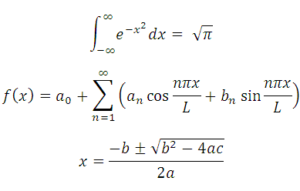No doubt, you’ve heard about Trump’s proposed budget, which includes things like billions for a border wall that will never be constructed and, presumably, a million or two for hush money to porn stars and/or Russian operatives.
But setting aside the minor facts that this budget would completely fuck over poor people and, maybe, destroy the planet, there is something else that caught my attention.
Defense spending would rise by 10 percent.
This is not a huge surprise, of course, as Republicans have a bizarre fascination with warfare, and members of the GOP are constantly threatening to invade one country or another, even while distancing themselves from the last disastrous war (a campaign that was, of course, all their idea in the first place). Hell, Republicans are happy to spend $30 million on a damn parade just to show off our super-awesome military hardware.
But a fair question is whether all this military spending is making us any safer.
After all, we already spend more cash on the military than any other nation on Earth — by far, actually. In fact, we spend more on our military than the next eight nations combined.
So when we will it be enough? Should we spend more than the next ten nations combined, or the next twenty? Should we spend more than the rest of the planet put together?
Because if it’s true — as Republicans have often said — that our military is in disrepair and needs to be rebuilt, I would ask, “Why can’t we get something decent for the 16 percent of our budget that we spend on defense?”
I mean, if the US military still sucks after all the hundreds of billions that have been thrown at it, maybe we should call off this whole defense idea and go the way of Costa Rica, a country that has no army. Incidentally, Costa Rica is never the target of terrorist cells and doesn’t get threatened by nutjobs with nuclear weapons.
Of course, that’s a bit of apples to oranges. But stay with me on this point.
You see, it appears that the more we spend on defense, the more likely we are to go to war. All those tanks and bombers and missiles apparently will themselves to be used.
Perhaps it is the same principle behind the fact that the states with the most firearms have the highest gun-death rates.
Just as having a gun in your house makes you more likely to get shot, maybe having more soldiers makes it more likely for a country to get into a war.
I don’t know whether than is true or not. But I do know this: We are the most fearful and paranoid nation in the industrialized world. No matter how much we spend on bombs and bullets, it will never make us feel safer.










